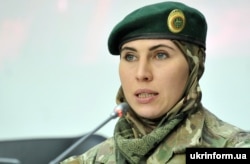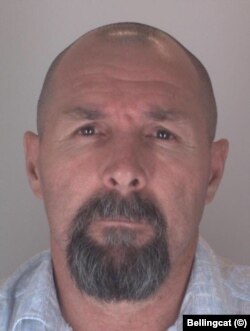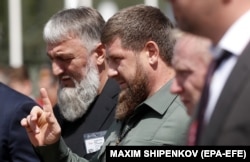German security forces are investigating possible involvement of Russian intelligence in the killing of a Georgian citizen in Berlin on August 23.
Zalimkhan Khangoshvili, 40, an ethnic Chechen from Georgia, was killed in what the Berlin general prosecutor said was a professionally planned, execution style operation.
A prominent figure in the Chechen society worldwide over the years, Khangoshvili was a field commander in the second war against Russia, served as an intermediary between the Georgian security services and the Chechens, and more recently was involved in organizing resistance in the Russia-occupied territories of Ukraine.
In Ukraine, Khangoshvili worked with Adam Osmayev, the leader of the Chechen militia fighting against Russia. Osmayev, who Russia claimed was plotting an assassination of the Russian president Vladimir Putin in 2012, survived several attempts on his life, the last of which killed his wife Amina Okuyeva near Kyiv in October 2017. Ukrainian intelligence said the attack was planned and carried out by the Russian security services.
Khangoshvili changed his name to Tornike Kavtarashvili and sought refuge in Germany after surviving an assassination attempt in Georgia in 2015. The Russian security services reportedly provided to the German intelligence agencies information branding Khangoshvili as an Islamic extremist and a terrorist.
Based on that information, several Russian and Western media outlets reported that Zelimkhan Khangoshvili was on Russia’s official list of wanted terrorists. That information is false. Neither the name Zalimkhan Khangoshvili nor the name Tornike Kavtarashvili is included on the official list, at least not publicly.
German law enforcement detained the suspected killer shortly after he fled from the scene on a bicycle, following eyewitnesses’ alert about the man disposing of his wig, bicycle and handgun -- all recovered later from the Spree River, less than half a mile away from the crime scene.
Berlin’s Attorney General said that the suspect, a man of Russian nationality, 49, was brought before the court and arrested. He came to Berlin shortly before the assassination and had an air ticket back to Russia.
A German security services’ source told Der Spiegel that the man refused to talk with the investigators and demanded to speak with representatives of the Russian embassy in Berlin instead.
The joint investigative team of Belligcat, the German newspaper Der Spiegel and the Russian outlet The Insider discovered that the suspect used a fake identity and a fake address but travelled with a validly issued Russian passport under the name of Vadim Andreevich Sokolov. Based on the findings, the Belligcat investigation concluded, that the Russian denials of involvement in the Berlin assassination were “implausible.”
The body of Zalimkhan Khangoshvili was delivered on Thursday, August 29, to his home village of Duisi in Georgia’s Pankisi Gorge and buried according to the Muslim tradition.
With Berlin’s increasing suspicions that the killing was a Russian state-organized political assassination and global headlines drawing parallel with the Skripal poisoning in Salisbury, U.K., Dmitry Peskov, the spokesman of Russia’s president Vladimir Putin, denied that the Kremlin or any Russian state agency had any connection to the crime.
The vast majority of the Russian media promoted an “alternative” version of who was behind the killing in Berlin, pushing forward the message that only the victim’s own kin, the Chechens, could have “dealt with him.” Russian media has been actively providing detailed narratives of Khangoshvili’s “terrorist activities.”
The revenge motive is fabricated, Chechens both in Russia and abroad said.
While the Russian narrative about the “Chechens from Russia” can potentially have merit based on precedent, Chechen Republic leader Ramzan Kadyrov has been implicated in ordering assassinations of his political competitors and critics, carried out by his security guards, friends, and even relatives both in Russia and abroad, including in the Middle East and Europe.
The Chechen law enforcement services denied any connection with the killing in Berlin, saying Khangoshvili “was Georgian and had lost any ties in Chechnya long ago.”
The “Chechens hiding in Europe” narrative has multiple weak points. First, the claim contradicts logic: it is hard to explain why former militia Chechens -- who “hide in Europe,” knowing that Russia is actively seeking their extradition to persecute them for their part in two separatist wars -- would demand to talk with representatives of the Russian embassy, as the arrested suspect did.
Moreover, the European Chechen diaspora made it clear – Russia is to blame for Khangoshvili’s assassination.
Akhmed Zakayev, one of the most prominent and most sought by Russia leaders of the Chechen separatists in exile in London, U.K. said the killing in Berlin “was demonstrative in nature,” drawing parallels with the assassinations of Kadyrov’s former bodyguard Umar Israilov in Vienna, Austria in 2009 and the poisoning of the Skripals in the U.K. in 2018.
Zakayaev, who served as the head of government of the Chechen Republic of Ichkeria (ChRI) under President Aslan Maskhadov in the late 1990s and early 2000s, said that these “political assassinations” were “acts of the Russian state terrorism.”
Anzor Maskhadov, the son of the ChRI President Aslan Maskhadov, who has lived in exile in Europe since Russian security killed his father in 2005, told Polygraph.info that Khangoshvili’s murder has been widely discussed among the Chechens both in Russia and abroad.
“I have never heard any Chechen having any issues with Zelimkhan, on the contrary, he was well respected and beloved,” Maskhadov said.
Maskhadov said, his father had “almost brotherly” relations with Khangoshvili, who was one of his most trusted field commanders.
“I knew him personally, he was a true patriot and never shy of stating his strong opposition against Chechens’ involvement in any jihadi wars abroad -- while Russia is still engaged in a war with us, and in a very vile war,” Maskhadov said. He confirmed Khangoshvili has been receiving death threats, “he was on Russia’s kill list.”
“We have only one suspect – the Russian Federation. It was a political execution planned in advance and carried out by the Russian security services’ operatives in Germany,” Maskhadov told Polygraph.info.
He, himself has been a target of the Russian security services. There have been kidnapping attempts and death threats that “never stopped,” the last such threat “delivered in a specifically cruel way – via my 70-years-old mother,” Maskhadov said.
The main argument for the “Chechen revenge” version promoted by Russian media is Khangoshvili’s role in the so-called “Lopota incident” – an armed standoff between the Georgian security forces and a group of Chechen Islamist militants in 2012. The situation involved hostage taking by the militants and resulted in dozens of casualties on both sides. Although, many details of the operation have never been made public, it has been confirmed that Khangoshvili played a key role in the negotiations to end the stand-off and have the hostages released.
While Russia portrayed Khangoshvili as a traitor of the Chechens for making a deal with the Georgian security services, blaming on him the deaths of many of the militants, the Georgian officials said his involvement helped save many lives.
“Many do not know that without Zelimkhan’s direct intervention we would have had much more casualties during the Lapankuri special operation,” Nugzar Tsiklauri, a former member of the Georgian Parliament representing the opposition United National Movement party said, adding, “Zelimkhan Khangoshvili was the man who tried his best to prevent Pankisi teenagers from going to the Syrian slaughter.”








